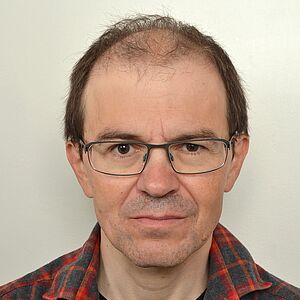
Benoit Fresse
Enseignements
Cours 2025-2026
Je suis en sabattique cette année.
Archives de cours disponibles en ligne
Les archives des cours ci-dessous sont disponibles en ligne publiquement, pour consultation (sans inscription). Les ressources proposées comprennent des enregistrements de cours, des notes d'accompagnements, des exercices et feuilles de problèmes.
Niveau gradué (master et doctorat)
This course was proposed as a graduate course, with a support from the MADIS graduate school of the University of Lille.
The purpose of the course is to provide an introduction to the theory of operads and to some motivating applications, given by particular classes of operads, called En operads, which model a hierarchy of homotopy commutative structures. The course also includes an introduction to the homology theory of associative algebras, which is treated in the first part of the course.
The course is organized in three parts. In the first part of the course, we give an introduction to operads, and we study in parallel the bar duality and the Koszul duality theory of algebras and of operads. In the second part, we give an introduction to categorical structures associated to the categories of algebras over an operad. In the third part of the course, we tackle the applications of En operads.
For a more detailed description, see: https://pro.univ-lille.fr/benoit-fresse/enseignements/cours-gradue-operads-graph-complexes-and-applications-universite-de-lille-janvier-mars-2025
The archive of this course is available publicly, for free consultation (with a "guest login"/"accès en tant qu'anonyme" allowed), on the moodle page: https://moodle.univ-lille.fr/course/view.php?id=47046
This course was given at a thematic program at IHP in May, 2023.
The course comprises three lectures on operads and graph complexes. The main purpose is to give an introduction to the computation of the rational homotopy of mapping spaces of operads, with motivations coming from the calculus of embeddings and the study of Grothendieck-Teichmüller groups.
For the archive of this course, see: https://pro.univ-lille.fr/benoit-fresse/enseignements/program-course-higher-structures-in-geometry-and-mathematical-physics-ihp-may-2023
This course is divided in three parts. In the first part, I explain the general definition of an operad and the applications of operads to the definition of categories of algebras. In the second part, I explain the applications of operads to the definition of homotopy commutative algebra structures on cochain complexes that underlie the classical commutative algebra structures of the cohomology of topological spaces. In the third part, I tackle applications of these homotopy commutative algebra to the definition of models of the homotopy theory of spaces, which extend the classical Sullivan model of the rational homotopy theory of spaces.
The course comprises series of recorded lectures, accompanying notes and exercices.
The archive of this course is available publicly, for free consultation (with a "guest login" / "accès en tant qu'anonyme" allowed), on the moodle page: https://moodle.univ-lille.fr/course/view.php?id=30681
Niveau Licence
Il s'agit du cours M41 du semestre 4 des licences de mathématiques, d'informatiques mathématiques et du parcours LAS - option mathématiques.
Les archives du cours sont accessibles publiquement sur ce site moodle pour consultation sans inscription (login possible comme "guest" / "accès en tant qu'anonyme").
Les ressources proposées comprennent des résumés et des enregistrements des cours, des feuilles d'exercices, ainsi que des problèmes pour aller plus loin.
Plan
- Suites de fonctions (convergence simple et uniforme des suites de fonctions; propriétés des limites uniformes)
- Séries de fonctions (convergence simple et uniforme, convergence normale, propriétés de la somme)
- Séries entières dans le domaine réel (convergence des séries entières, fonctions développables en série entières - exemples classiques et calcul)
- Séries entières dans le domaine complexe (rappel sur la convergence des suites et séries à valeurs complexes, convergence des séries entières dans le domaine complexe, fonctions complexes définies par une série entière, exemple de l'exponentielle).
- Complément : développement en série entière des fractions rationnelles



